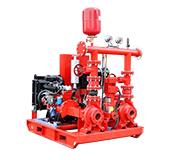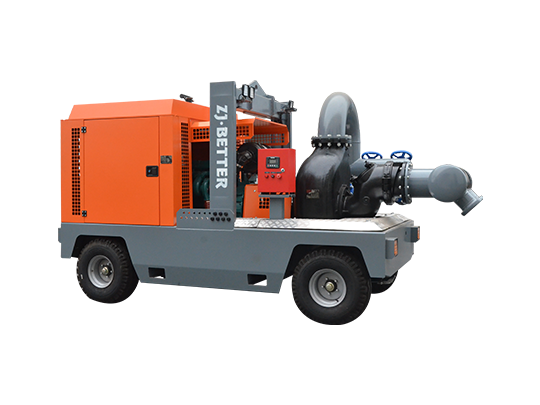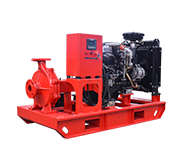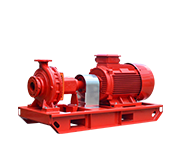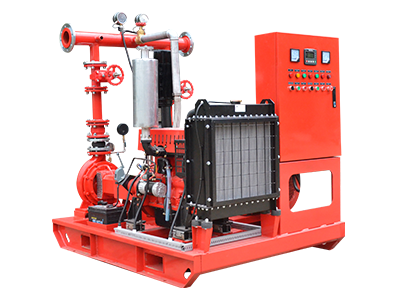- Fire Pump System
-
- UL-Listed Fire Pump SetEDJ End Suction Fire Pump SetEDJ Fire Pump SetEJ Small Flow Fire Pump SetFire Pump PackagesContainerized fire pump setDiesel Fire Pump SetED Small fire pump setElectric Jockey Fire Pump SetFire Pump Set with Jockey PumpFire Pump SystemSplit Case Fire Pump SetMutistage EDJ Fire Pump SetDiesel Fire Pump Set with Jockey PumpFire Fighting Pump SystemElectric Diesel Jockey Fire Pump SetFire Fighting Pump Set with Jockey PumpSmall Capacity Electric Fire Pump SetDJ Fire Pump Set with Jockey PumpEJ Fire Pump SetED Fire Pump Set (Electric+Diesel pump)Diesel Engine Fire Pump SetDiesel Fire Jockey PumpSmall Fire Pump SetEDJ Fire Pump SystemFire Water Pump SetFire Pump AssemblyDJ Small Flow Fire Pump SetCummins Engine Fire Pump Set
- Mobile Pump Unit
-
- Split Case Series Mobile Pump TruckSelf Priming Series Mobile Pump TruckCentrifugal diesel driven dewatering pumps open frame trailerFlow-mixing Mobile Pump TruckFlow-mixing Mobile Pump TruckManure Pump TruckP12 modle mobile Pump truckP10 Modle Mobile Pump Truck1000m³Self Priming Series Mobile Pump TruckLarge Flow Non-Clogging Mobile Fire Pump TrailerTrailer Mounted Fire PumpFire Emergency Mobile Pump TruckDiesel Engine Emergency Mobile Trailer Pump
- Diesel Fire Pump
-
- UL Listed Diesel End Suction Fire PumpXBC-S Diesel Split Case Fire PumpXBC-IS Diesel End Suction Fire PumpXBC-D Diesel Multistage Fire PumpVertical Turbine Diesel Engine Fire PumpDiesel Engine Single-Stage Centrifugal PumpXBC-IS Diesel End Suction Fire Fighting PumpXBC-S Diesel Engine Split Case Fire PumpDiesel Engine End Suction Fire PumpXBC-IS Diesel End Suction Fire PumpsZWC Diesel Engine Self Priming Pump for IrrigationDiesel Engine End Suction Fire Fighting PumpXBC-S Heat Exchange Diesel End Suction Fire PumpXBC-XA Diesel Engine End Suction Fire PumpXBC-IS Diesel Engine Fire PumpDiesel Engine End Suction Fire PumpXBC-IS Diesel Engine End Suction Fire PumpXBC-ISO Diesel Fire Fighting PumpPortable Fire PumpFire Booster Pump

Email: zjbetter@119pump.com
Tel:+86 15336708022(Gloria) +86 13306708055 (Ivy) +86 13357006058 (Serena) +86 13357022877 (Wendy) +86 17757009882(Kate)
Fax:0086-570-3010238
-
Everything You Need to Know About Fire Pump Monitoring Software
Overview: Introduce the concept of real-time monitoring through software. Key Features: Discuss data logging, remote access, and alarm systems. Benefits: Highlight how monitoring improves reliability and reduces downtime. Top Solutions: Mention leading software solutions in the market. Demo: Include screenshots or mock-ups of monitoring dashboards.
View more +
-
Everything You Need to Know About Fire Pump Standby Power Systems
Importance of Standby Power: Explain the need for reliable power during emergencies. Options: Discuss diesel generators, battery backups, and dual power sources. Design Considerations: Cover load calculations and switching mechanisms. Case Study: Showcase a scenario where standby power prevented a critical failure. Diagram: Illustrate a system with integrated standby power.
View more +
-
Everything You Need to Know About Fire Pump Engine Types
Overview: Compare electric motors, diesel engines, and steam turbines. Pros and Cons: Highlight advantages and limitations of each engine type. Applications: Explain how engine types align with various scenarios, such as remote or urban settings. Maintenance Tips: Provide a guide for maintaining each type of engine. Infographic: Include a comparison chart.
View more +
-
Everything You Need to Know About Fire Pump Control Panel Configurations
Purpose of Control Panels: Explain how they manage pump startup, monitoring, and emergency functions. Types of Panels: Detail across electric, diesel, and dual-use panels. Custom Configurations: Discuss customization options for specific system needs. Compliance: Mention standards like NFPA20 for control panel design. Interactive Element: Include an annotated diagram of a control panel.
View more +
-
Everything You Need to Know About Fire Pump Valve Sizing
Introduction: Define the role of valves in regulating flow and pressure. Types of Valves: Outline key types, including relief valves, check valves, and butterfly valves. Sizing Guidelines: Share a step-by-step method for sizing valves based on flow and pressure requirements. Common Mistakes: Highlight errors like undersized or oversized valves and their consequences. Illustration: Include diagrams showing valves in a fire pump system.
View more +
-
Everything You Need to Know About Fire Pump Valve Sizing
Introduction: Define the role of valves in regulating flow and pressure. Types of Valves: Outline key types, including relief valves, check valves, and butterfly valves. Sizing Guidelines: Share a step-by-step method for sizing valves based on flow and pressure requirements. Common Mistakes: Highlight errors like undersized or oversized valves and their consequences. Illustration: Include diagrams showing valves in a fire pump system.
View more +
-
Everything You Need to Know About Fire Pump Flow and Pressure Optimization
Overview: Explain the relationship between flow rate and pressure in fire pump performance. Key Factors: Discuss factors like system demand, pipe friction losses, and NFPA20 standards. Best Practices: Offer strategies for achieving optimal flow and pressure, such as correct pump sizing and regular maintenance. Tools: Mention tools like flow meters and pressure gauges. Case Study: Provide an example where optimization reduced operational inefficiencies.
View more +
-
Why Fire Pump System Updates Are Necessary to Meet New Standards
Compliance Overview: Detail the importance of staying updated with NFPA20 and other standards. Risks of Outdated Systems: Discuss potential penalties and safety hazards. Upgrade Process: Offer tips for planning and executing updates. Success Story: Share an example of a facility that benefitted from an updated fire pump system.
View more +
-
Why Regular Fire Pump Inspections Can Prolong the Life of Your System
Benefits of Inspections: Highlight how inspections prevent wear and tear from escalating. Inspection Frequency: Discuss recommended intervals for different types of inspections. Inspection Checklist: Provide a comprehensive checklist for facility managers. Testimonial: Include a quote from a fire safety expert.
View more +
-
Why Fire Pump Flow Meters Are Necessary for Accurate Performance Monitoring
Purpose and Functionality: Explain how flow meters measure performance and ensure compliance. Types of Flow Meters: Discuss different models and their applications. Real-World Application: Share a use case demonstrating how flow meters improved system efficiency. Diagram: Provide a labeled diagram of a fire pump system with a flow meter.
View more +
-
Why Fire Pump Shutdown Procedures Should Be Part of Your Emergency Plan
Importance of Proper Shutdown: Discuss the risks of improper shutdown, such as water hammer. Step-by-Step Guide: Offer a detailed procedure for safe shutdown. Training Tips: Stress the importance of training personnel in these procedures. Checklist: Include a printable shutdown checklist.
View more +
-
Why Periodic Fire Pump Vibration Testing Can Save You Money
Concept Overview: Explain how vibration analysis identifies mechanical issues early. Cost Benefits: Compare the cost of preventive maintenance versus emergency repairs. Expert Tips: Share advice from industry professionals on conducting vibration testing. Case Study: Highlight a scenario where vibration testing avoided a costly breakdown.
View more +
-
Why Correct Fire Pump Sizing Prevents Overload and System Failures
Technical Overview: Explain factors like flow rate, pressure requirements, and system demand. Risks of Incorrect Sizing: Detail issues like cavitation, overheating, and reduced efficiency. Best Practices: Provide a step-by-step guide to sizing a fire pump correctly. Visual Aid: Include a sizing chart or formula illustration.
View more +
-
Why Diesel Fire Pumps Are Ideal for Remote and Off-Grid Locations
Highlight Features: Discuss the advantages of diesel pumps, such as independence from electricity. Challenges and Solutions: Address maintenance and fuel storage concerns. Applications: Provide examples of use in mining sites, rural areas, or disaster zones. Infographic: Show a comparison between diesel and electric fire pumps.
View more +
-
Why Redundant Fire Pump Systems Are Essential for Critical Infrastructure
Importance of Redundancy: Explain why critical facilities (e.g., hospitals, airports) need uninterrupted fire protection. Technical Insights: Discuss design considerations for redundant systems, like primary and backup configurations. Examples: Showcase a critical infrastructure project using a redundant fire pump system. Diagram: Include a visual showing how redundant systems operate.
View more +
-
Why Fire Pumps Fail During Emergencies (and How to Prevent It)
Introduction: Discuss the impact of fire pump failures on fire safety. Common Reasons for Failure: List causes like lack of maintenance, electrical faults, or improper installation. Prevention Strategies: Provide actionable tips, such as regular inspections, routine maintenance, and staff training. Real-World Example: Cite a case where preventive measures could have avoided failure.
View more +
-
Why Fire Pump Testing is Crucial for Ensuring Building Safety
Overview: Explain the role of fire pumps in delivering adequate water pressure during emergencies. Key Benefits: Highlight how testing ensures compliance, operational readiness, and early detection of issues. Case Study: Share a real-life incident where regular testing saved lives and property. Takeaway: Include a checklist for fire pump testing as per NFPA standards.
View more +
-
What Is Fire Pump Suction Fluctuation and How Is It Managed?
Fire Pump Suction Fluctuation: This occurs when the pressure or flow on the suction side of a fire pump varies unpredictably. Causes include inconsistent water supply, air entrainment, partially closed valves, or system demand changes. Suction fluctuations can lead to cavitation, reduced pump performance, and potential damage. How It’s Managed: Ensure Steady Water Supply: Use properly sized water tanks or reliable mains connections. Install Air Release Valves: Remove trapped air from suction lines. Check Suction Piping: Ensure the piping is correctly sized, free from leaks, and adequately submerged. Add Suction Stabilization Devices: Suction tanks or headers can help stabilize supply pressure. Monitor and Maintain: Regularly inspect suction valves, strainers, and screens for blo
View more +
-
Diesel Fire Pumps with Electronic Governors vs. Mechanical Governors
Electronic Governors: Provide precise speed control, faster response, and easier integration with remote monitoring systems. Mechanical Governors: Simpler and highly reliable, though slower to adjust and less adaptable to advanced systems.
View more +
-
Fire Pump Flow Testing On-Site vs. Bench Testing
On-Site Flow Testing: Performed in the installed system, assessing performance under actual conditions. Ensures compliance with NFPA standards. Bench Testing: Conducted in a controlled environment before installation to verify the pump’s capacity and efficiency.
View more +
-
Fire Pumps for Industrial Fire Protection vs. Utility Fire Protection
Industrial Fire Protection: High-capacity pumps designed for large-scale hazards such as chemical plants, refineries, or manufacturing facilities. Utility Fire Protection: Pumps tailored for infrastructure like power plants or water utilities, ensuring system-specific reliability.
View more +
-
Wet Fire Pump Motors vs. Dry Fire Pump Motors
Wet Motors: Submersible and designed to operate directly in water; often used for submerged pump installations. Dry Motors: Installed outside of the water source, protected from moisture, suitable for above-ground setups.
View more +
-
Variable Speed Fire Pumps vs. Fixed Speed Fire Pumps
Variable Speed Fire Pumps: Adjust speed based on demand, offering energy efficiency and reduced wear on components. Fixed Speed Fire Pumps: Operate at a constant speed, simpler to maintain and more cost-effective but less adaptable to fluctuating demands.
View more +
-
Fire Pumps with Bronze Components vs. Fire Pumps with Cast Iron Components
Bronze Components: Corrosion-resistant, suitable for applications with saltwater or harsh environments. Often used in marine or coastal facilities. Cast Iron Components: Durable and cost-effective, ideal for freshwater applications or less aggressive environments.
View more +
-
Fire Pump Pressure Relief Valves vs. Pressure Regulating Valves
Pressure Relief Valves: Protect the system from over-pressurization by venting excess pressure. Commonly used on diesel systems due to their fixed speeds. Pressure Regulating Valves: Control and maintain a consistent discharge pressure, ensuring optimal performance without pressure spikes.
View more +

